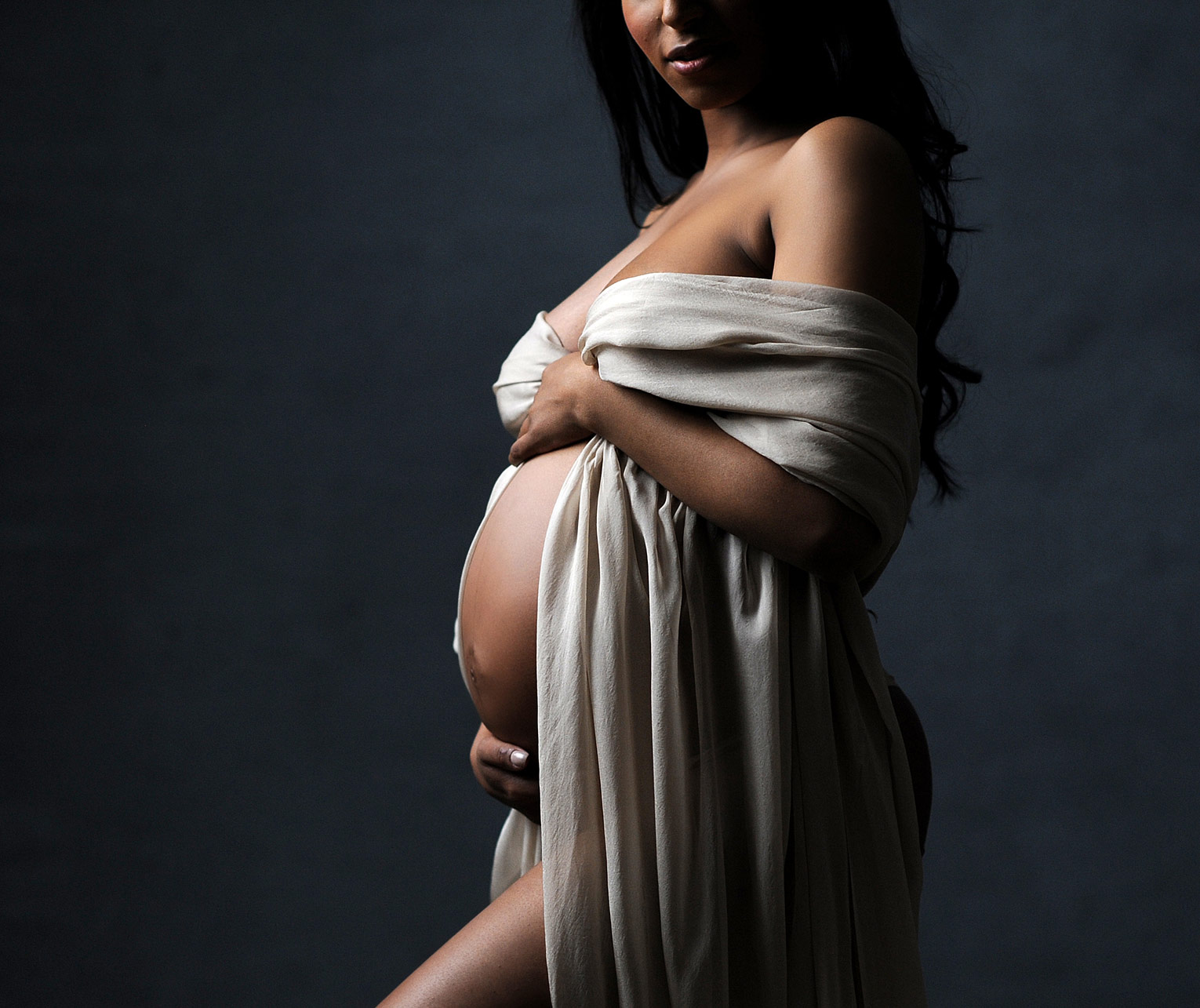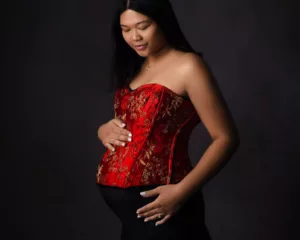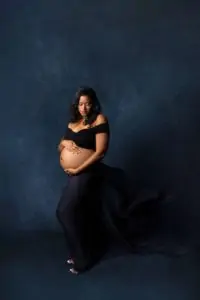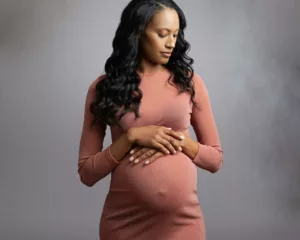Black Mothers at Risk: Confronting the Reality of Maternal Health Inequity

As a photographer in the Baltimore area and a woman of color, the topic of maternal health inequity is incredibly important to me. For me, this issue is personal, and I have seen firsthand the disparities in healthcare that Black women face.
Here in the United States, a developed nation with advanced healthcare systems, the maternal mortality rate is among the highest in the developed world. What is even more concerning is that Black women are more likely to die from pregnancy or childbirth complications than women in any other racial group. This is a grave issue that needs to be addressed on a national level.
The statistics are shocking. According to the CDC, the maternal mortality rate for Black women in the US in 2021 was 69.9 deaths per 100,000 live births. This is more than 2.6 times the rate for white women, which was 26.6 deaths per 100,000 live births. This disparity persists regardless of income or education level, and it has been increasing over time. So, why are Black women at such a high risk of maternal mortality? The answer is complex and multifactorial.
Systemic Racism
One of the major contributing factors is systemic racism and its impact on healthcare outcomes. Black women face racism and discrimination in every aspect of their lives, including in healthcare. Studies have shown that Black patients receive lower quality healthcare than white patients, even when controlling for factors like income, education, and insurance status. Black patients are less likely to receive appropriate medical care, are less likely to receive pain medication, and are less likely to be referred for specialized treatment than white patients. This systemic racism can lead to delayed or inadequate care, misdiagnosis, and overall worse health outcomes.
Chronic Stress
Additionally, Black women are more likely to experience chronic stress due to racism, poverty, and discrimination. Chronic stress has been linked to negative health outcomes, including increased risk of pregnancy complications. Black women also experience higher rates of chronic health conditions, such as hypertension, obesity, and diabetes, which can increase the risk of pregnancy complications.
Lack Of Access To Quality Prenatal Care
Another contributing factor is the lack of access to quality prenatal care. Black women are more likely to live in areas with limited access to healthcare providers and facilities. They may also face barriers to accessing prenatal care due to transportation, cost, and work schedules. Lack of prenatal care can lead to undiagnosed and untreated conditions that increase the risk of pregnancy complications.
Implicit Bias And Cultural Incompetence
Moreover, implicit bias and cultural incompetence among healthcare providers can contribute to the high maternal mortality rate among Black women. Implicit bias refers to the unconscious attitudes and stereotypes that healthcare providers hold about certain groups of people, which can affect their decision-making and treatment recommendations. Cultural incompetence refers to a lack of understanding and awareness of different cultural beliefs and practices that can impact health outcomes. Healthcare providers who are not aware of or sensitive to the unique needs and experiences of Black women may provide suboptimal care.
Inequitable Distribution Of Resources
Black communities often have less access to resources such as healthy food options, safe and affordable housing, and quality education, which can contribute to poorer health outcomes during pregnancy and childbirth.
Over Medicalization Of Childbirth
Black women are more likely to undergo unnecessary medical interventions during childbirth, such as induction or C-sections, which can increase the risk of complications and maternal mortality.
Lack Of Diversity In Healthcare Workforce
The lack of diversity in the healthcare workforce exacerbates maternal health inequities for Black women. This is due to a lack of understanding and cultural competency when it comes to the unique health needs of Black women. The negative impacts of this issue on Black patients’ health outcomes include:
- Limited trust: Black women may be less inclined to trust healthcare providers who do not represent their communities or understand their experiences.
- Unconscious bias: Healthcare providers may hold unconscious biases that lead them to underestimate the severity of health concerns for Black women, resulting in underdiagnosis or undertreatment.
- Inequitable treatment: Healthcare providers may be less likely to provide adequate pain management, prescribe less effective treatments, or engage in shared decision-making with Black women, resulting in poorer health outcomes.
- Limited role models and mentors: The lack of representation in healthcare leadership roles and a shortage of Black healthcare providers can limit opportunities for mentorship and career advancement for Black individuals who aspire to pursue healthcare careers.
Pregnancy Resources and Research Often Do Not Include Black Women
Black women are at a higher risk for pregnancy-related complications such as pre-eclampsia, gestational diabetes, preterm birth, and maternal mortality compared to white women. Despite this fact, many pregnancy resources are tailored to white women, with little to no consideration for the unique experiences and needs of Black women.
For example, many pregnancy pamphlets and websites may feature only white women or use language that assumes a white, middle-class experience. This can make it difficult for Black women to understand and navigate the healthcare system, and it can also contribute to feelings of isolation and frustration during what can already be a stressful time.
Furthermore, Black women are often excluded from clinical trials and research studies related to pregnancy and maternal health. This exclusion can result in a lack of knowledge and understanding of how to best care for Black women during pregnancy, as well as a lack of appropriate treatment options.
In conclusion, addressing the root causes of the high maternal mortality rate among Black women is essential to improving maternal health outcomes in the United States. It requires a multi-faceted approach that includes addressing systemic racism, increasing access to quality prenatal care, promoting cultural competence and diversity in the healthcare workforce, and providing pregnancy resources that are inclusive of Black women’s unique experiences and needs. It is critical to prioritize the health and well-being of Black women during pregnancy and childbirth to ensure that every person has the opportunity to lead a healthy and fulfilling life. By acknowledging and aggressively addressing these issues, we can work towards reducing the maternal health inequities between Black and white women.
__________________________________________________________________________________________________
Hi, I’m Angela from Angela Singleton Photography, a Black-woman-owned photography business in the Washington DC, Maryland, and Virginia areas. As a photographer, I am passionate about using my art to raise awareness of social justice issues, and maternal health inequity is no exception. I believe that by shining a light on this issue, we can help to create a more just and equitable healthcare system for all women, regardless of their race or socioeconomic status. Through my photography, I hope to amplify the voices of Black mothers and raise awareness of the challenges they face in accessing quality care. I also hope to highlight the resilience and strength of Black mothers, who continue to fight for their health and the health of their children in the face of systemic barriers.
I love to celebrate and empower Black women in the Baltimore and DMV area through maternity photography. I’d love to talk to you about your vision for your maternity portrait session! I don’t want photos to add any stress to your plate, which is why I bring the studio to you. Home is where you and your family feel comfortable. And when you’re comfortable, it makes for beautiful photos. Let’s chat!






